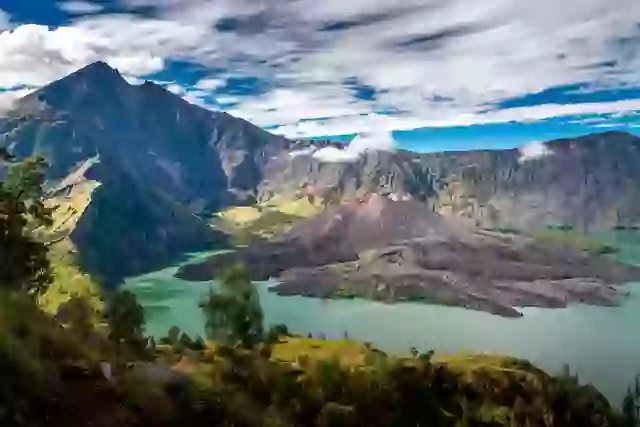Brazilian Traveler Dies After Falling into Active Volcano in Indonesia: Rescue Efforts Hindered by Terrain and Weather
A tragic incident on Indonesia’s Mount Rinjani has claimed the life of Juliana Marins, a 26-year-old Brazilian woman who fell from a cliff and remained trapped for four days in one of the world’s most treacherous volcanic landscapes. Despite intense rescue efforts, she could not be saved.

Juliana, an adventurous traveler from Niterói, Brazil, had been hiking with a guide toward the summit of Mount Rinjani, an active volcano on Lombok Island. Known for its breathtaking views and challenging terrain, Rinjani is a popular destination for experienced hikers. However, it can also be dangerously unforgiving—especially in adverse conditions.
The incident occurred in the early hours of Saturday, June 21, as Juliana and her guide were approaching a key point along the route. According to family reports and media accounts, she requested a short break, but the group she was with allegedly continued onward without her. When the guide later returned to check on her, she had already disappeared—having fallen down a steep cliffside.
For days, her family and people across Brazil held out hope that Juliana could be rescued alive. Her story quickly drew attention, with widespread prayers and online support flooding in as updates trickled from Indonesia. Tragically, those hopes were extinguished when rescue teams finally reached her location and confirmed that she had not survived the fall.
In a statement shared by Juliana’s family, they wrote: “Today, the rescue team managed to reach the place where Juliana Marins was. With great sadness, we inform you that she did not survive. We remain very grateful for all the prayers, messages of affection, and support that we have received.”

The Brazilian Federal Senate also responded to the loss. Senator Tereza Cristina expressed her condolences publicly, stating: “All of Brazil prayed for Juliana’s safe return. Unfortunately, the rescue did not arrive in time. We urge the Brazilian government to demand a full investigation into the circumstances of this tragedy and accountability for those involved. Juliana was abandoned—first on the trail, and then after her fall.”
Juliana had been traveling extensively through Asia, documenting her journey and experiences through her personal social media accounts. Her love for adventure and exploration was evident, and her sudden death has left family, friends, and followers in deep mourning.
Her sister, Marianna, also gave details about the heartbreaking timeline. She said Juliana lost sight of her guide and didn’t know where to go, ultimately becoming disoriented. “She didn’t know what to do. When the guide came back because he saw that she was taking too long, he saw that she had fallen down there.”
Fellow hikers on the trail described the climb to Mount Rinjani’s summit as exceptionally difficult, especially during the early morning hours when visibility is limited. One witness told Brazil’s Globo TV, “It was before sunrise, with just a small flashlight to see the ground. The terrain was slippery, uneven, and really challenging.”
Authorities at Gunung Rinjani National Park later issued a statement confirming that Juliana had been located via drone footage. She was seen motionless on a rock ledge approximately 500 meters deep. Initial rescue attempts were complicated by treacherous conditions, including two large overhangs that prevented the secure placement of anchors needed to descend safely.
“The rescue team attempted to reach the site but faced insurmountable obstacles,” the park’s report stated. “Due to poor weather and terrain instability, the operation had to be suspended.”
Mount Rinjani last erupted in 2016 and remains classified as an active volcano. While its dramatic landscapes and crater lake attract thousands of tourists annually, the climb to its summit demands preparation, experience, and caution. Juliana’s death is a devastating reminder of the risks involved in high-altitude hiking in unstable environments.
Her passing has triggered calls for stronger regulations regarding hiking tours in remote and hazardous regions. Advocates have pointed to the apparent negligence of the guide and the absence of immediate backup support when Juliana was left alone.
As Brazil mourns, many are left reflecting on the need for greater oversight in adventure tourism and a renewed emphasis on safety in high-risk destinations.
Juliana’s story, though tragic, has resonated across continents. Her passion for life, travel, and exploration will be remembered by all who followed her journey.
Source: [Getty, Globo, Itamaraty, Instagram/@ajulianamarins]